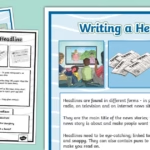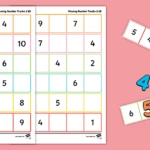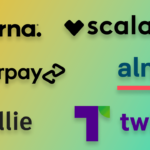Now Reading: Find the Perfect Words to Describe Someone
-
01
Find the Perfect Words to Describe Someone
Find the Perfect Words to Describe Someone

Finding the right words to describe someone can be a challenge. Whether you’re writing a character for a story, preparing a speech, or just trying to compliment a friend, the words you choose matter. They paint a picture, convey emotion, and capture the essence of a person’s being. Having a rich vocabulary at your disposal makes it easier to express yourself clearly and powerfully. This guide will provide you with a comprehensive list of words and show you how to use them effectively to describe personality, appearance, emotions, and more. We will explore different categories of words, helping you find the perfect descriptor for any situation.
Key Takeaways
- Expand Your Vocabulary: Move beyond simple words like “nice” or “good” to more specific and impactful adjectives.
- Context is King: The best word to use depends on the situation, your relationship with the person, and what you want to convey.
- Describe More Than Personality: Use descriptive words for a person’s appearance, emotions, intellect, and work ethic to create a well-rounded picture.
- Positive vs. Negative: Understand the connotation of words to ensure you are sending the intended message.
- Practice Makes Perfect: The more you practice using new descriptive words, the more naturally they will come to you in conversation and writing.
Why Using Specific Words Matters
Using generic words like “nice” or “interesting” doesn’t give a clear picture. Is the person nice because they are kind and volunteer their time, or are they nice because they are polite and agreeable? The difference is significant. Specific words to describe someone add depth and precision to your language. They allow you to communicate more effectively, whether you’re giving a formal character reference or simply telling a story to a friend.
When you use precise language, you show that you have paid attention. You demonstrate a deeper understanding of the person you are describing. This can strengthen relationships and make your writing more engaging. For instance, instead of saying a coworker is “good at their job,” you could say they are meticulous, innovative, or proactive. These words provide a much clearer image of their professional strengths and contributions to the team. Learning to use a wider range of descriptive words is a skill that enhances communication in all aspects of life.
Words to Describe Personality Traits
Personality is often the first thing we think of when describing someone. It’s the unique combination of qualities that makes a person who they are. Finding the right words to describe someone based on their personality can be broken down into positive, negative, and neutral traits.
Positive Personality Traits
Positive words highlight a person’s strengths and admirable qualities. They are perfect for compliments, letters of recommendation, or simply expressing admiration. Using these words can make someone feel valued and appreciated.
Here are some positive words to describe someone:
- Affable: Friendly, good-natured, and easy to talk to.
- Conscientious: Wishing to do one’s work or duty well and thoroughly.
- Diligent: Showing care and conscientiousness in one’s work or duties.
- Empathetic: Able to understand and share the feelings of another.
- Exuberant: Full of energy, excitement, and cheerfulness.
- Gregarious: Fond of company; sociable.
- Resilient: Able to withstand or recover quickly from difficult conditions.
- Sincere: Free from pretense or deceit; proceeding from genuine feelings.
- Resourceful: Having the ability to find quick and clever ways to overcome difficulties.
- Venerable: Accorded a great deal of respect, especially because of age, wisdom, or character.
These words go beyond the surface, offering a specific glimpse into what makes a person great. For example, calling someone resilient tells a story of strength and perseverance, which is far more impactful than just saying they are “strong.”
Negative Personality Traits
Sometimes, it’s necessary to describe less desirable traits. This can be tricky, as you want to be honest without being overly harsh. These words can be useful for character development in fiction or for providing constructive feedback. It is important to use them thoughtfully and with care.
Here are some negative words to describe someone:
- Abrasive: Showing little concern for the feelings of others; harsh.
- Cantankerous: Bad-tempered, argumentative, and uncooperative.
- Fickle: Changing frequently, especially as regards one’s loyalties or affections.
- Grandiose: Pompous or extravagant in style or manner.
- Malevolent: Having or showing a wish to do evil to others.
- Pugnacious: Eager or quick to argue, quarrel, or fight.
- Superficial: Not having or showing any depth of character or intellect.
- Volatile: Liable to change rapidly and unpredictably, especially for the worse.
- Petulant: Childishly sulky or bad-tempered.
- Vindictive: Having or showing a strong or unreasoning desire for revenge.
When using these words, the context is crucial. Describing a fictional villain as malevolent sets a clear tone, while describing a coworker as abrasive in a private feedback session requires a more delicate approach.
Describing Someone’s Appearance
While personality is key, appearance is often the first thing we notice. Describing physical attributes helps create a mental image for your audience. Using vivid and specific words to describe someone physically can bring them to life on the page or in a listener’s mind.
Words for General Appearance
Start with a general impression. Is the person dapper and well-dressed, or do they have a more bohemian and free-spirited style? These words set the stage for more detailed descriptions.
- Elegant: Graceful and stylish in appearance or manner.
- Unkempt: Having an untidy or disheveled appearance.
- Statuesque: Tall, well-proportioned, and having a dignified appearance (typically used for women).
- Lanky: Ungracefully thin and tall.
- Robust: Strong and healthy; vigorous.
- Radiant: Sending out light; shining or glowing brightly, often with health or happiness.
Describing Facial Features
The face is incredibly expressive. You can convey a lot about a person by describing their eyes, smile, or overall expression.
- Eyes: Instead of just color, describe their quality. Are they piercing, luminous, pensive, or sparkling?
- Smile: A smile can be infectious, warm, coy, or wry.
- Expression: A person’s resting face might be pensive, serene, stern, or jovial.
Using a combination of these words creates a much richer portrait. For example, “She had a serene expression and luminous eyes that seemed to hold a deep sense of peace” is far more descriptive than “She looked calm.”
Words for Emotions and Moods
A person’s emotional state is constantly changing. Having the right vocabulary allows you to describe these temporary states with accuracy. These words to describe someone are useful for capturing a moment in time.
|
Emotion Category |
Descriptive Words |
|---|---|
|
Happiness |
Ecstatic, Jubilant, Elated, Cheerful, Merry, Exuberant |
|
Sadness |
Melancholy, Despondent, Crestfallen, Somber, Mournful |
|
Anger |
Irate, Livid, Furious, Incensed, Wrathful, Indignant |
|
Fear |
Apprehensive, Panicked, Terrified, Timorous, Petrified |
|
Surprise |
Astonished, Flabbergasted, Stunned, Dumbfounded, Bewildered |
When you describe someone’s mood, you add another layer to their character. Saying a character was irate gives a stronger sense of their anger than just saying they were “mad.” It implies a more intense, seething form of anger. Understanding the nuances between these words helps you communicate emotion more precisely. For more insights on building powerful narratives, you might find valuable resources at platforms like Forbes Planet.
Words to Describe Intellect and Work Ethic
How someone thinks and works are fundamental parts of their identity, especially in a professional or academic context. Using the right words to describe someone in these areas is crucial for resumes, performance reviews, and references.
Describing Intelligence
Intelligence isn’t just about being “smart.” It comes in many forms. Is the person analytical, creative, or emotionally intelligent?
- Astute: Having an ability to accurately assess situations or people and turn this to one’s advantage.
- Erudite: Having or showing great knowledge or learning.
- Incisive: Intelligently analytical and clear-thinking.
- Perceptive: Having or showing sensitive insight.
- Sagacious: Having or showing keen mental discernment and good judgment; wise.
- Innovative: Featuring new methods; advanced and original.
Describing a colleague as incisive suggests they can cut through the noise and get to the heart of an issue, a valuable skill in any workplace.
Describing Work Ethic
A person’s approach to work says a lot about them. Are they a leader, a team player, or a diligent worker who focuses on the details?
Here are some powerful words to describe someone‘s work ethic:
- Assiduous: Showing great care and perseverance.
- Proactive: Creating or controlling a situation by causing something to happen rather than responding to it after it has happened.
- Meticulous: Showing great attention to detail; very careful and precise.
- Indefatigable: Persisting tirelessly.
- Principled: Acting in accordance with morality and showing recognition of right and wrong.
- Steadfast: Resolutely or dutifully firm and unwavering.
Saying an employee is indefatigable paints a picture of someone with incredible stamina and dedication, which is much more compelling than simply calling them a “hard worker.”
Putting It All Together: Creating a Full Picture
The most effective descriptions combine different types of words to create a holistic view of a person. You don’t have to use a long list of adjectives. Instead, choose a few impactful words that work together to form a cohesive and memorable image.
Example 1: Describing a Mentor
Instead of: “My boss is nice and smart.”
Try: “My mentor, Sarah, is one of the most sagacious people I know. She has an incisive mind that can deconstruct any business problem in minutes. But beyond her intellect, she’s incredibly affable and always makes time for her team, offering guidance with a warm smile that instantly puts you at ease.”
This description combines words for intellect (sagacious, incisive) and personality (affable, warm) to create a well-rounded and admiring portrait.
Example 2: Describing a Fictional Character
Instead of: “The villain was evil and scary.”
Try: “The antagonist, Silas, moved with a lanky, spider-like grace that was unsettling. His face was a mask of stoic indifference, but his piercing eyes held a malevolent glint. He spoke in a low, measured tone that was more terrifying than any shout, each word delivered with chilling precision.”
Here, words for appearance (lanky), expression (stoic, piercing), personality (malevolent), and manner (measured, chilling) combine to create a truly frightening character.
Conclusion
The power of language lies in its ability to create vivid, detailed, and emotionally resonant pictures in the minds of others. Expanding your collection of words to describe someone is a valuable exercise that can improve your writing, enhance your communication, and deepen your connections with people. Move beyond simple, overused adjectives and embrace the richness of the English language.
By choosing words with intention—whether you’re describing personality, appearance, intellect, or emotion—you can paint a portrait that is as unique and complex as the individual you are describing. Start by incorporating one or two new words into your vocabulary each day. The more you practice, the more natural it will become to find the perfect word for every occasion.
Frequently Asked Questions (FAQ)
Q1: How can I find positive words to describe someone without sounding fake?
To sound genuine, be specific and provide examples. Instead of just saying someone is “generous,” you could say, “He’s incredibly generous; I’ve seen him give up his free time every weekend to help at the local food bank.” Tying the descriptive word to a concrete action makes the compliment more meaningful and sincere.
Q2: What’s the difference between a character trait and a mood?
A character trait is a long-lasting aspect of someone’s personality, like being conscientious or gregarious. A mood is a temporary emotional state, such as being elated after receiving good news or pensive while thinking about a problem. Traits are consistent, while moods are fleeting.
Q3: Is it okay to use negative words to describe someone?
It depends entirely on the context. In creative writing, negative words are essential for creating compelling villains or flawed, realistic characters. In real life, they should be used with caution. It’s often more productive to describe negative behaviors rather than labeling a person with a negative trait, especially in a professional setting. For example, instead of saying a coworker is “lazy,” describe the behavior: “He has missed several important deadlines.”
Q4: How can I expand my vocabulary of descriptive words?
Reading widely is one of the best methods. Pay attention to how authors describe their characters. You can also use a thesaurus, but be careful to understand the nuance of each synonym before using it. Making flashcards or keeping a journal of new words and their meanings can also be very effective.
Q5: Can you recommend a list of powerful words to describe someone’s leadership skills?
Certainly! Some powerful words to describe someone in a leadership role include: visionary, decisive, inspirational, accountable, principled, empowering, resolute, and collaborative. These words highlight key qualities that define effective leadership.
















